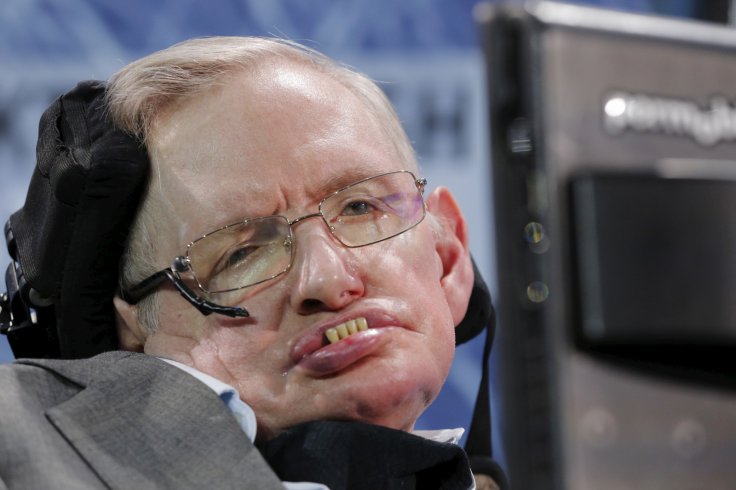
Stephen William Hawking, the eminent British physicist and black-hole theorist who dedicated all his life to unseal the secrets of the universe, has died at the age of 76 in his home in Cambridge, England in the early hours of Wednesday morning.
The famous cosmologist was suffering from amyotrophic lateral sclerosis, which is also known as Lou Gehrig's disease. He was confined to an electric wheelchair for much of his adult life. Hawking was one of the world's longest survivors of ALS as he was diagnosed at the age of 21.
Hawking, who was a Cambridge University professor, was often compared to Albert Einstein, a German-born theoretical physicist who developed the theory of relativity, one of the two pillars of modern physics. Ironically, Hawking died on March 14, which is Albert Einstein's birth anniversary.
Hawking worked with mathematician Sir Roger Penrose and demonstrated how Einstein's General Theory of Relativity eventually breaks down when time and space are traced back to the Big Bang about 13.7 billion years ago. He also redefined cosmology by proposing that black holes emit radiation and later evaporate.
Once in an interview with the Time Magazine, Hawking was asked what he would say if he could talk with Albert Einstein. The professor promptly answered: "I would ask him why he didn't believe in black holes."
"The field equations of his General Theory of Relativity implied that a large star or cloud of gas would collapse in on itself and form a black hole. Einstein was aware of this but somehow managed to convince himself that something like an explosion would always occur to throw off mass and prevent the formation of a black hole. What if there was no explosion?" said Hawking in this video from Time magazine.
The theoretical physicist and author of the bestseller 'A Brief History of Time' made the remark in late 2010, when he agreed to take part in the Time's "10 Questions" series.
Albert Einstein was awarded the Nobel Prize in 1921 for "his services to Theoretical Physics, and especially for his discovery of the law of the photoelectric effect". But, the international recognition in Physics proved elusive for Hawking throughout, despite all his exemplary views and theorems.
Reports say that Hawking's theories required observational data to win the praise of the Nobel Prize awarding committee in Stockholm. Though his theories about the Black Hole and the Big Bang were accepted in theoretical physics, were never verified.
According to Timothy Ferris, author of 'The Science of Liberty' in National Geographic magazine, "The problem was that there was no way to verify the idea. Black holes are too long-lived to be observed today in their death throes".
The Nobel Foundation excludes posthumous nominees anyway and his name may join the greats like Mahatma Gandhi, who never received it.
"By any reasonable standard, Stephen Hawking is a great scientist. Even if time shows some of his more radical proposals to be incorrect, Hawking will have had a profound impact on the history of science," said Henry F. Schaefer III, a chemistry professor at the University of Georgia, in his 2001 lecture.
Hawking was born exactly 300 years after the death of Italian physicist Galileo Galilei, on Jan. 8, 1942 in Oxford, England.









